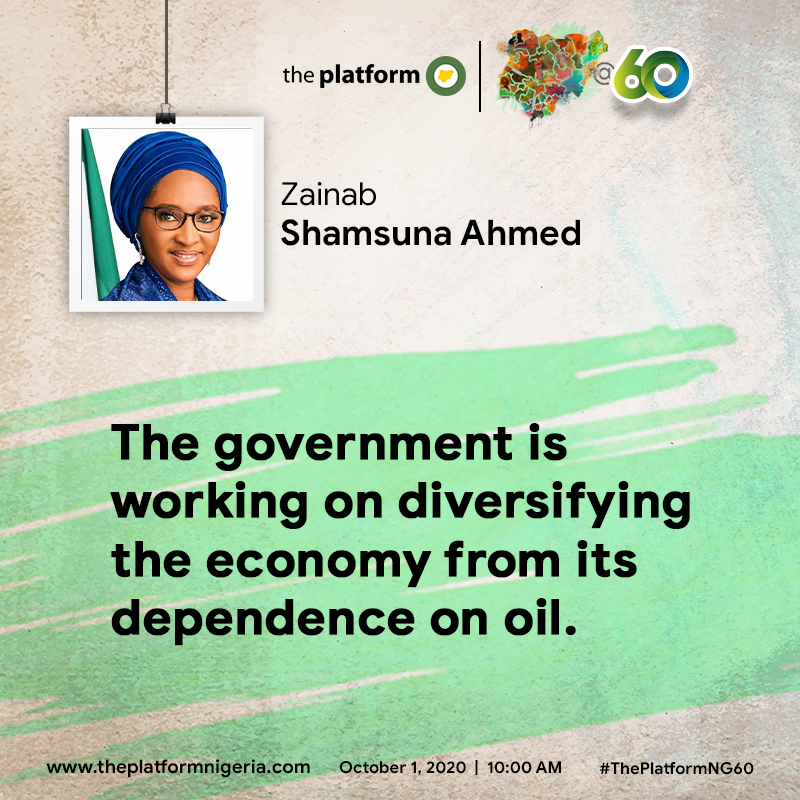Fielding questions from the Convener of The Platform Nigeria, Pastor Poju Oyemade, the Honorable Minister said, from the onset, the administration was well aware of the challenges ahead, with dwindling oil prices leading to low revenue generation for the government. Hence, one of the first programmes she instituted was the Strategic Revenue Base Initiative (SRBI).
The highlights of the SRBI involved:
- Responsible borrowing to stimulate the economy;
- Strengthening food security, and this became especially crucial with COVID-19 imposed lockdown
- Diversification of the economy with less dependency on oil
Ahmed further hinted on how the Covid-19 pandemic has inspired government and its agencies to adapt to fiscal responsibility realities which include cuts in travel expenses leveraging technology collaboration and modern messaging as options, with government achieving much more than when the status quo was in place. And, besides the reduction in fuel price, and relaxation in electricity tariff increase, the government was able to cushion the effects of the pandemic on Nigerians through such savings.
The honourable minister, who says revenue generation is one thing that keeps her up at night, highlights some of the specific milestone achievements of this present administration since inception as well as its annual sectoral targets from 2020 to 2022, numerically speaking, to include:
- Establishment of the National Economic Recovery and Growth Plan (ERGP) to address agriculture and food security which has seen improvements in rice and maize production;
- Target to generate 25MW of electricity annually;
- Key rail infrastructure projects which include the completed Lagos-Ibadan rail route, ongoing Ibadan-Kano route, proposed Port Harcourt-Maiduguri, Northeast-Northwest routes and rail routes to connect Southern Nigeria (which are under consideration for approval).
According to the minister, the investment in the rail infrastructure was to enable businesses to invest alongside the government. She mentioned that, to this effect, the president signed Executive Order 007 to allow Public-Private Partnership where, based on an agreement with the government, private companies can invest in building road networks while they enjoy tax credits. The Oshodi-Apapa expressway being reconstructed by Dangote Industries Limited, and other roads across South-South Nigeria have been borne out of such initiatives.
Other concerns shared by the honourable minister include blocking financial leakages in the economy and enhancing national cohesion, especially within the revenue ecosystem. “We discovered that people were working in Silos and investments had been made in IT systems that were still sitting in Silos, making it difficult to collaborate and bring it all together,” she pointed out. To address this challenge, she submitted, a process was created where, on a monthly basis, reconciliation of the revenues is done and the numbers thereof tallied. She added that the ministry is also working on interfacing all the IT systems so that performance of revenue is seen in real-time.
Concluding her session at ThePlatform Nigeria 2020, Mrs Zainab Ahmed beamed hope to Nigerians that government is investing in the improvement of skills acquisition in order to ensure that beneficiaries are able to work more closely together and consequently achieving more together rather than have agencies here and there working independently of one another.

